10 Best Herbal Tinctures For Snoring
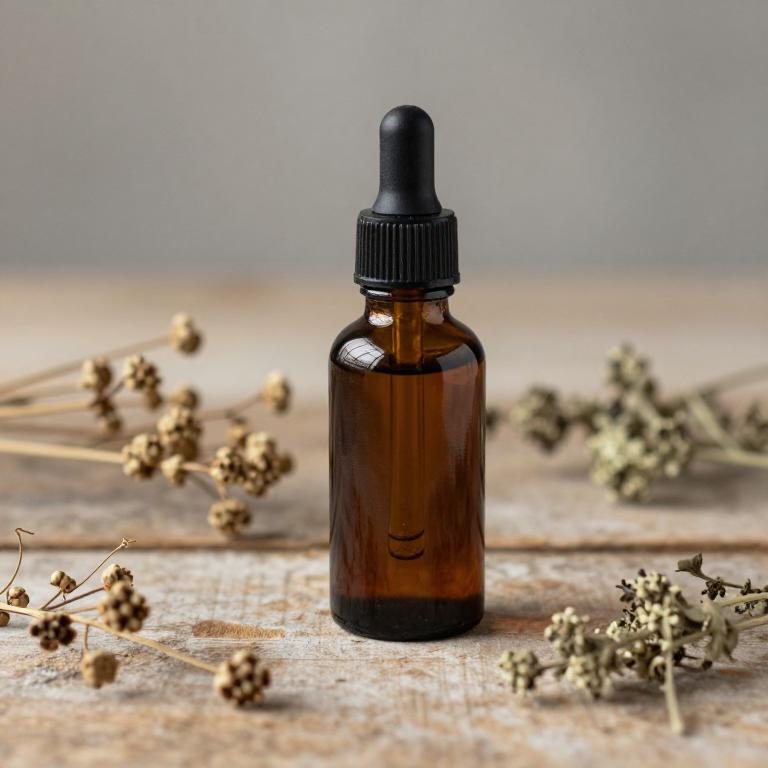
Herbal tinctures for snoring are concentrated liquid extracts made from various plants believed to help reduce nighttime breathing disruptions.
Common ingredients include valerian root, passionflower, and lemon balm, which are known for their calming and sedative properties. These tinctures may help relax the muscles in the throat and reduce the frequency of snoring by promoting better sleep quality. They are typically taken orally before bedtime and can be a natural alternative to over-the-counter or prescription treatments.
However, it's important to consult a healthcare provider before use, especially if you have underlying health conditions or are taking other medications.
Table of Contents
- 1. Valerian (Valeriana officinalis)
- 2. Ginger (Zingiber officinale)
- 3. Chamomile (Matricaria chamomilla)
- 4. Ceylon cinnamon (Cinnamomum verum)
- 5. Black pepper (Piper nigrum)
- 6. Licorice (Glycyrrhiza glabra)
- 7. Stinging nettle (Urtica dioica)
- 8. Eucalyptus (Eucalyptus globulus)
- 9. Rosemary (Rosmarinus officinalis)
- 10. Salvia (Salvia officinalis)
1. Valerian (Valeriana officinalis)

Valeriana officinalis, commonly known as valerian, is a herbal plant traditionally used for its calming effects on the nervous system.
Valerian root tinctures are often recommended for individuals suffering from snoring due to their potential to reduce anxiety and promote better sleep quality. The active compounds in valerian, such as valerenic acid, may help relax the muscles in the throat and airways, potentially reducing the frequency of snoring. While scientific evidence supporting its effectiveness for snoring is limited, many users report improved sleep and reduced nighttime noise.
As with any herbal remedy, it is advisable to consult with a healthcare professional before use, especially if you have underlying health conditions or are taking other medications.
2. Ginger (Zingiber officinale)

Zingiber officinale, commonly known as ginger, has been traditionally used in herbal medicine for its anti-inflammatory and bronchodilating properties.
When prepared as a tincture, ginger can help reduce inflammation in the airways and nasal passages, which may contribute to snoring by improving respiratory function. Some studies suggest that ginger may help relax the muscles in the throat, potentially reducing the vibrations that cause snoring. However, while anecdotal evidence supports its use, more clinical research is needed to confirm its effectiveness for this specific purpose.
As with any herbal remedy, it is advisable to consult a healthcare professional before using ginger tinctures for snoring, especially if you have underlying health conditions or are taking other medications.
3. Chamomile (Matricaria chamomilla)
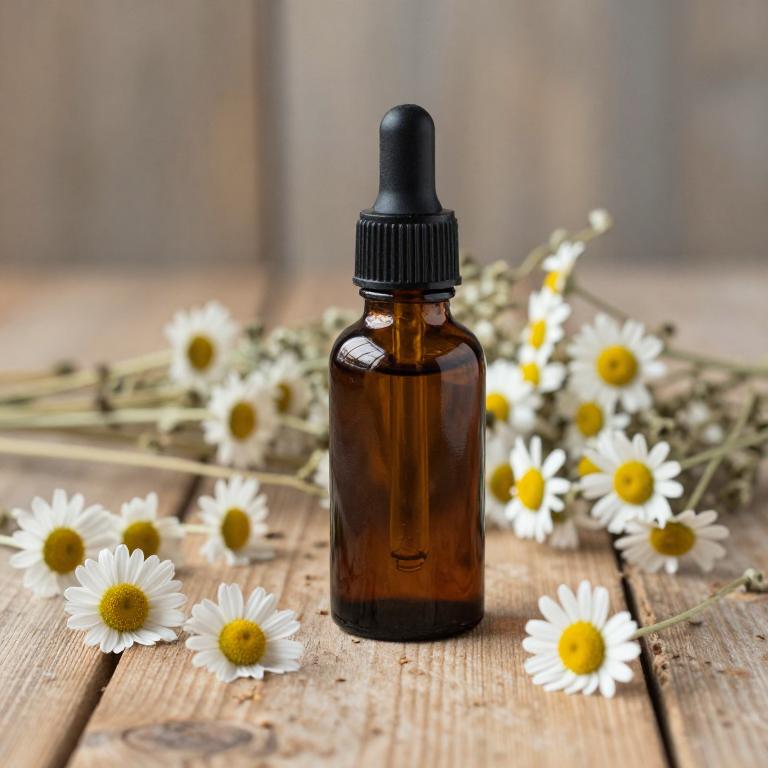
Matricaria chamomilla, commonly known as chamomile, is a popular herbal remedy that has been traditionally used for its calming and soothing properties.
Chamomile tinctures, derived from the dried flowers of the plant, are often used to promote relaxation and improve sleep quality, which can indirectly help reduce snoring. While there is limited scientific evidence directly linking chamomile tinctures to the reduction of snoring, some studies suggest that its ability to relax the throat muscles may contribute to less obstructive breathing during sleep. Additionally, chamomile is known for its anti-inflammatory and antispasmodic effects, which may help alleviate conditions like allergic rhinitis that can exacerbate snoring.
As a natural alternative, chamomile tinctures are generally considered safe for most adults, though they should be used with caution and under the guidance of a healthcare professional.
4. Ceylon cinnamon (Cinnamomum verum)
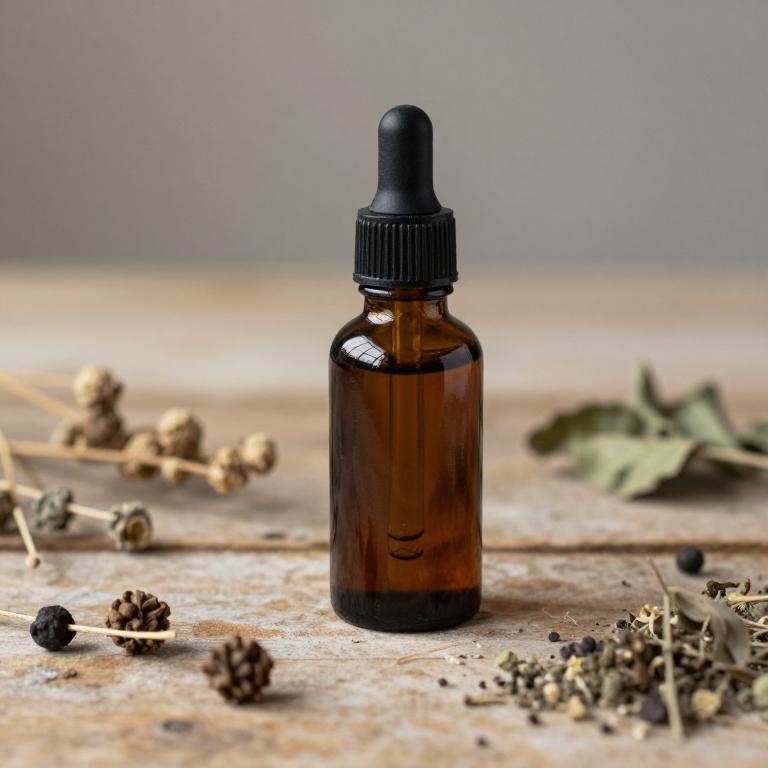
Cinnamomum verum, commonly known as true cinnamon, has been traditionally used in herbal medicine for its potential respiratory and calming properties.
When prepared as a tincture, cinnamon may help reduce inflammation in the airways and soothe the throat, which can contribute to alleviating snoring. Some studies suggest that the essential oils in cinnamon may help relax the muscles in the throat, reducing the likelihood of obstructed breathing during sleep. While anecdotal evidence supports its use for snoring, more clinical research is needed to confirm its efficacy.
As with any herbal remedy, it is important to consult with a healthcare professional before use, especially for individuals with allergies or existing medical conditions.
5. Black pepper (Piper nigrum)
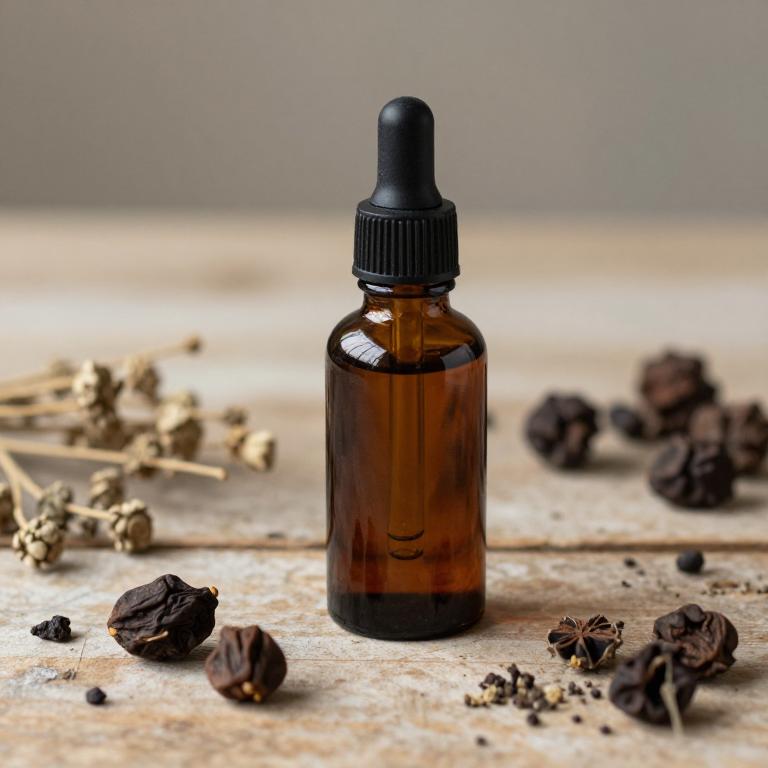
Piper nigrum, commonly known as black pepper, has been traditionally used in herbal medicine for its potential therapeutic properties.
When prepared as a tincture, piper nigrum may help alleviate snoring by stimulating the respiratory system and improving airflow. The active compound, piperine, is believed to enhance the body's absorption of other nutrients and may have mild expectorant effects. Some alternative health practitioners suggest using black pepper tinctures to reduce inflammation in the throat and nasal passages, which can contribute to snoring.
However, it is important to consult with a healthcare professional before using any herbal tincture, as individual responses can vary and side effects may occur.
6. Licorice (Glycyrrhiza glabra)

Glycyrrhiza glabra, commonly known as licorice root, has been traditionally used in herbal medicine for its potential to support respiratory health and reduce inflammation.
When prepared as a tincture, glycyrrhiza glabra may help soothe the throat and reduce irritation, which can be beneficial for individuals who experience snoring due to throat congestion or inflammation. Some studies suggest that licorice root may help relax the muscles in the upper airway, potentially reducing the frequency and intensity of snoring. However, it is important to note that while licorice tinctures may offer supportive benefits, they are not a cure for snoring and should be used in conjunction with other lifestyle and medical interventions.
As with any herbal supplement, it is advisable to consult with a healthcare provider before use, especially for individuals with hypertension or other health conditions.
7. Stinging nettle (Urtica dioica)

Urtica dioica, commonly known as stinging nettle, has been traditionally used in herbal medicine for its various health benefits, and its tincture is sometimes explored for its potential to alleviate snoring.
The plant contains compounds such as histamine and formic acid, which may help reduce inflammation and improve airway function, potentially decreasing the frequency of snoring. While scientific evidence supporting its effectiveness for snoring is limited, some users report improved sleep quality and reduced nighttime noise after using stinging nettle tinctures. It is often recommended as a natural alternative to conventional treatments, though it should be used under the guidance of a healthcare professional.
As with any herbal remedy, individual responses may vary, and it is important to consult a physician before starting any new treatment for snoring.
8. Eucalyptus (Eucalyptus globulus)
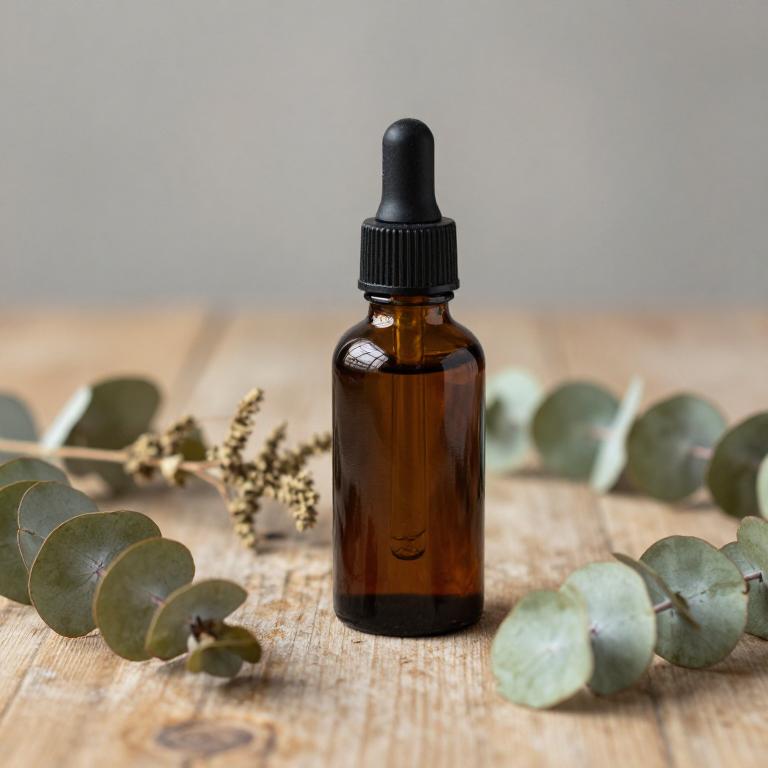
Eucalyptus globulus, commonly known as eucalyptus oil, is a popular herbal tincture used to address snoring due to its potent decongestant and expectorant properties.
When used as a tincture, it helps to clear nasal passages and reduce mucus buildup, which can contribute to obstructed airflow during sleep. The menthol-like compound cineole in eucalyptus globulus has a soothing effect on the respiratory tract, promoting easier breathing and potentially reducing snoring. It is often used in aromatherapy or as a topical application, though it should be diluted before use to avoid skin irritation.
While it may offer some relief, it is advisable to consult a healthcare professional for persistent or severe snoring issues.
9. Rosemary (Rosmarinus officinalis)

Rosmarinus officinalis, commonly known as rosemary, has been traditionally used for its aromatic and medicinal properties, and its herbal tinctures are increasingly being explored for their potential to alleviate snoring.
The essential oils in rosemary tinctures, particularly camphor and pinene, may help to reduce nasal congestion and improve respiratory airflow, which are common contributors to snoring. Some studies suggest that the stimulating effects of rosemary can enhance muscle tone in the upper airway, potentially reducing the likelihood of obstructive apneas and snoring episodes. While more clinical research is needed, anecdotal reports and preliminary findings indicate that rosemary tinctures may offer a natural alternative for individuals seeking relief from snoring.
When used as part of a holistic approach, rosemary tinctures may complement other lifestyle and medical interventions for better sleep quality.
10. Salvia (Salvia officinalis)

Salvia officinalis, commonly known as sage, has been traditionally used in herbal medicine for its various health benefits, including its potential to reduce snoring.
When prepared as a tincture, sage can be taken orally to help alleviate respiratory issues that contribute to snoring, such as nasal congestion or throat inflammation. The active compounds in sage, including thujone and flavonoids, may help to soothe the throat and reduce the frequency of snoring by promoting clearer airways. Some studies suggest that sage tinctures can also have a calming effect on the nervous system, which may indirectly support better sleep quality and reduce nighttime breathing disturbances.
However, it is important to consult a healthcare professional before using sage tinctures, especially for individuals with certain medical conditions or those taking other medications.